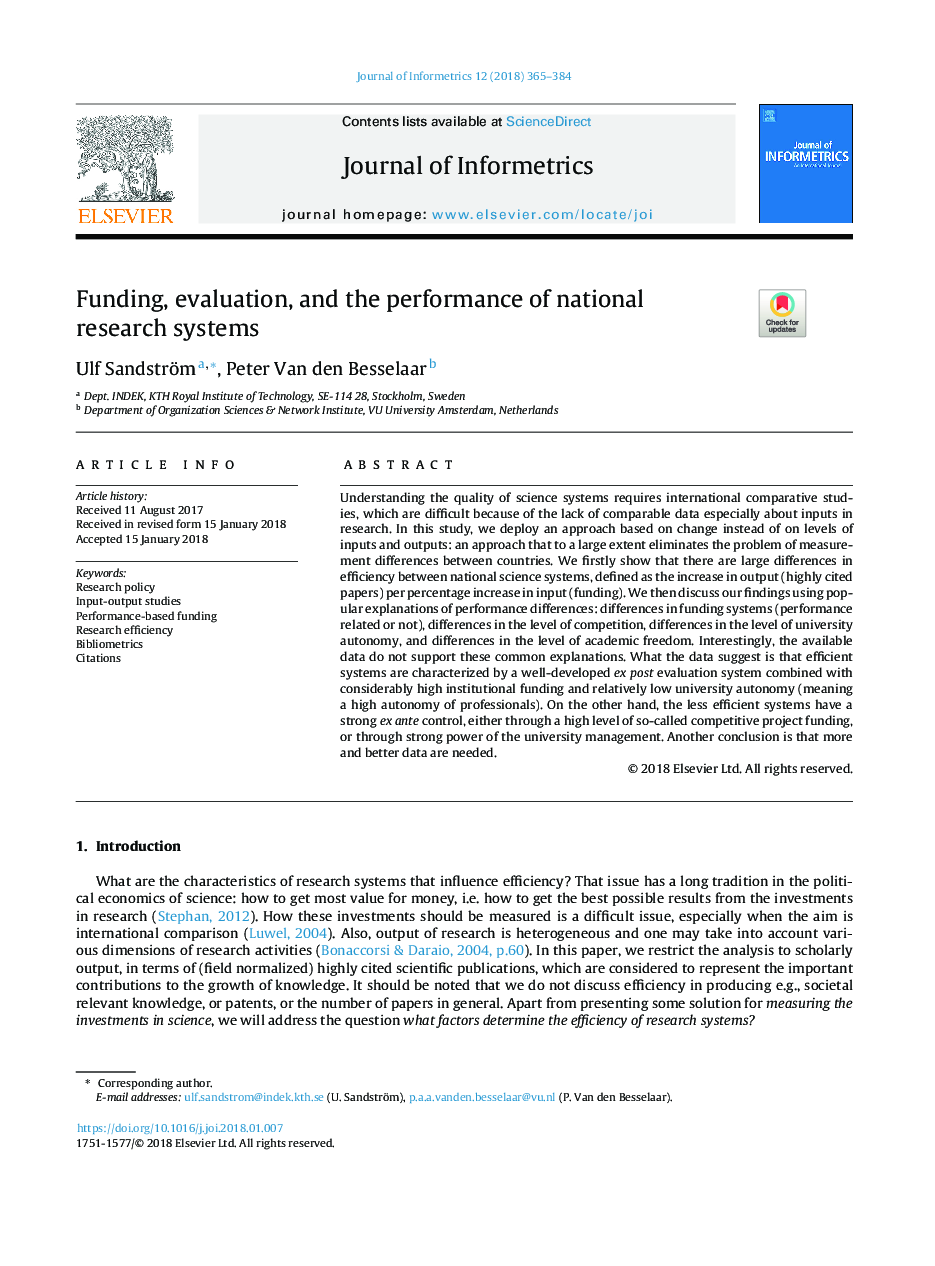| Article ID | Journal | Published Year | Pages | File Type |
|---|---|---|---|---|
| 6934243 | Journal of Informetrics | 2018 | 20 Pages |
Abstract
Understanding the quality of science systems requires international comparative studies, which are difficult because of the lack of comparable data especially about inputs in research. In this study, we deploy an approach based on change instead of on levels of inputs and outputs: an approach that to a large extent eliminates the problem of measurement differences between countries. We firstly show that there are large differences in efficiency between national science systems, defined as the increase in output (highly cited papers) per percentage increase in input (funding). We then discuss our findings using popular explanations of performance differences: differences in funding systems (performance related or not), differences in the level of competition, differences in the level of university autonomy, and differences in the level of academic freedom. Interestingly, the available data do not support these common explanations. What the data suggest is that efficient systems are characterized by a well-developed ex post evaluation system combined with considerably high institutional funding and relatively low university autonomy (meaning a high autonomy of professionals). On the other hand, the less efficient systems have a strong ex ante control, either through a high level of so-called competitive project funding, or through strong power of the university management. Another conclusion is that more and better data are needed.
Related Topics
Physical Sciences and Engineering
Computer Science
Computer Science Applications
Authors
Ulf Sandström, Peter Van den Besselaar,
